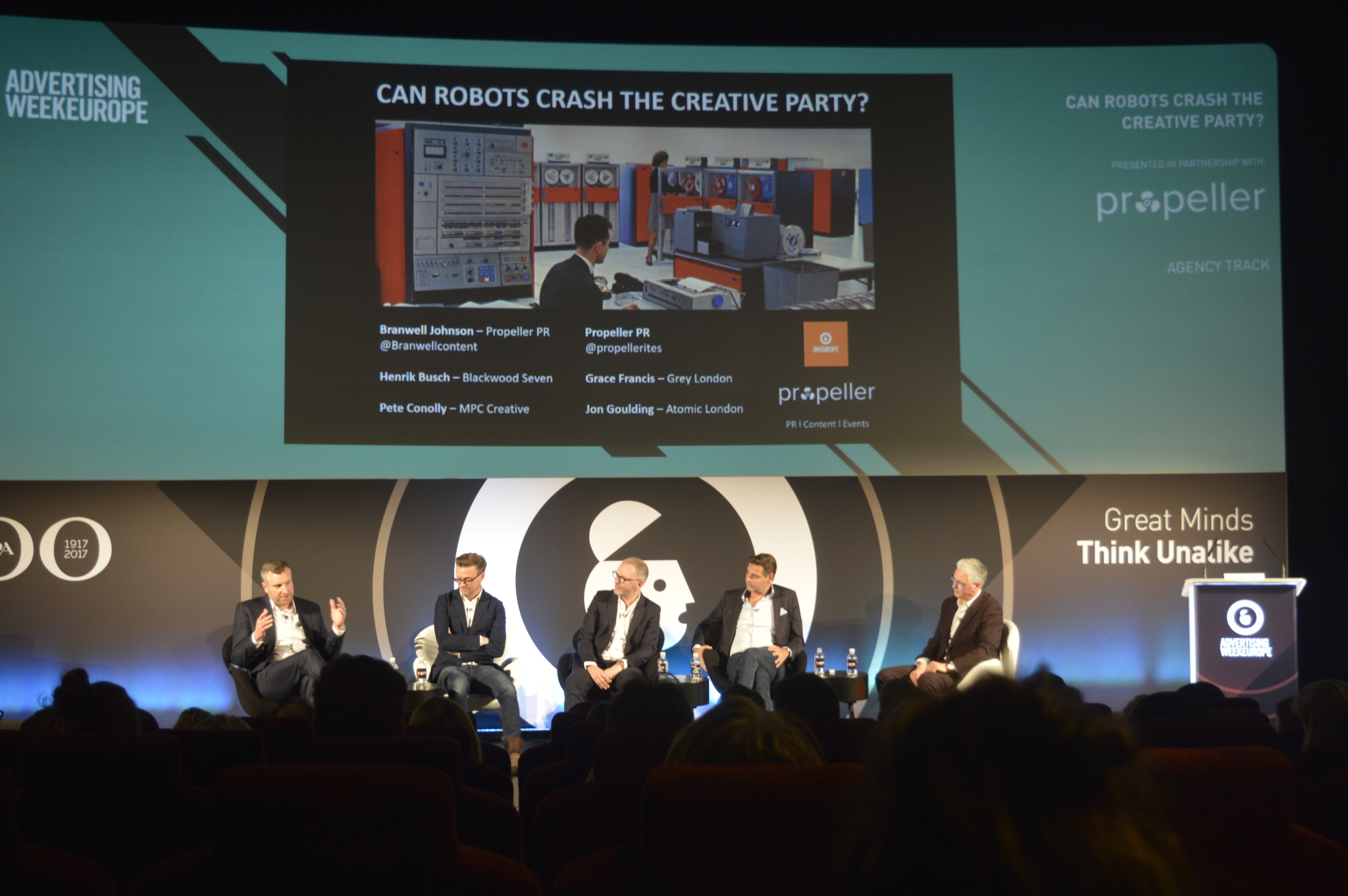
Propeller’s session ‘Can Robots Crash The Creative Party?’ brought a creative angle to the AI debate at Ad Week Europe. It explored the big questions in regard to how forward-thinking creative agencies are using this innovative and potentially job-threatening technology.
The panel featured Jon Goulding, Founding Partner at Atomic London, Henrik Busch, UK Managing Partner at Blackwood Seven, Jon Carney, Chief Digital Officer at McCann Worldgroup, and Pete Conolly, Creative Director at MPC Creative. It was chaired by Branwell Johnson, Director of Content at Propeller PR.
The panel used AI in various ways and had differing perceptions about its application, but all agreed it’s here to stay. Carney stated: “Without question, AI and machine learning will power up millions of revenue for our industry.” Goulding agreed that “AI is going to fundamentally change what creative agencies are paid to do.” Busch expanded on this, arguing: “While it won’t replace us or change the way we work, it will change the information available to us and will ultimately help us be more creative.”
At the moment, media agencies seem closer to the technology behind AI – so does this mean that media and creative agencies will battle it out for the creative brief? The panel gave an alternative view and said each discipline will need to start working better with one another. Goulding explained: “Media and creative agencies have to work together in order to create a campaign that truly works. It is fundamental that channel, message and timing are cohesive. The entire media plan needs to work as one.”
Carney added: “Data analytics and solutions are fundamental on the journey and this change is exciting.” Busch declared: “AI can be used to inform creative – helping agencies generate content for audiences that actually aligns with their needs.”
However, Goulding did warn the audience that AI still needs some work: “It does have the potential to overinvest in digital, and can sometimes neglect traditional channels, which are equally as important.” Carney implied that the industry still has much to learn when it comes to AI: “While it is powering a lot of creative work, we still need to understand it better.” Conolly added: “AI is going to be something we can’t ignore, but right now it is misunderstood. We think of AI as sentient beings but in reality, it’s a little less visual that that.”
Goulding also touted at the power of emotions for engagement and reminded the audience that ultimately, “People love great ideas because of the human effort behind it. The struggle.”
The panel said AI and machine learning is nothing to fear, despite it often being positioned as an industry threat. Conolly stated: “AI is not a cool white fibreglass being that will make us a martini.” Instead, he explained that “It will be a tool used like anything else.” Goulding elaborated: “A huge number of creative agencies already follow a formulaic approach to their work. AI makes this format better.” Carney agreed: “Even if all it does is enable the industry to gain a better brief, then great.”
No-one can predict how this technology will advance over the next 5–10 years. However, rather than fearing that the robot revolution will replace the need for humans, it is evident that creatives agencies will instead partner with this technology.
View the panel at Ad Week Europe here: